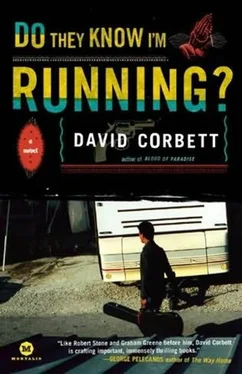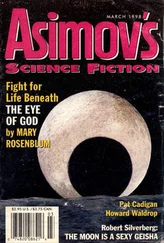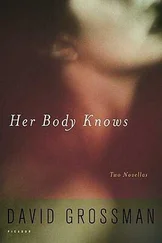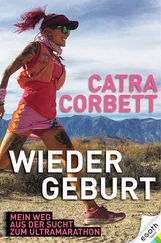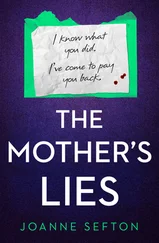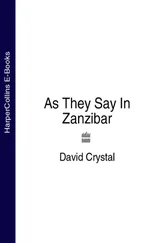He worked his way back through the dwindling crowd to the posada and chose a dark spot between two vendor stalls to settle in and wait for Beto. The working girls were still gathered out front, watching the last of the fireworks. Some of the roughnecks from earlier came and went as well, refreshed with beer. A quarter before nine, Chepito and his sidekick showed up, materializing from the stragglers still wandering about. The two men vanished inside-a minute passed, then two, then five. Chepito and the other man returned to the porch, the latter carrying the cheap guitar now, holding it by the neck like a club. They questioned the hookers, one of whom pointed the way Roque and the others had taken earlier, toward the river, not the fair. Good, Roque thought, go.
A hand clamped down on his shoulder.
He shot to his feet, spun around, knocked the hand away.
“Easy, cabrón.”
Roque’s skin was slick with sweat. “I didn’t know who you were.”
“I get that.” Beto leaned out into the street, looking each direction. “I already rounded up your uncle and the other two.”
“How did you know where to find them?”
“You keep asking me that.”
Roque wiped his face. “We’ve decided to go with you, not El Chusquero.”
“Yeah. That’s been explained already.” Beto reached into his jeans, withdrew a box of Chiclets, shook two pieces into his palm, sharing one. “Look, I’ll get your uncle and the other two across the river, we’ll pick up a bus on the other side. You should go get your car before those two huecos looking for you figure that’s where you gotta end up.”
A fight broke out in the middle of the street, down the way, near the posada. The hookers started cheering, wading into the fray, bawling out the names of the adversaries: Chepe, Zumbo.
“Get to the bridge,” Beto said. “Tell the border agent you’re heading for Puerto Vallarta, Acapulco, someplace on the coast. Follow the highway all the way to Arriaga. Go to the railway station. There’s a hotel across the street. Ask for Victor. He knows you’re coming.”
ROQUE GOT HIS BEARINGS AND FOUND HIS WAY BACK TO WHERE HE’D parked the Corolla. The lot was marked by Christmas lights draped between poles on either side of the entrance. Pausing in an alley across the street, he waited a moment, making sure only the old man and his grandsons were there, not Chepito, not his buddy, not someone else. He dug into his pocket, pulled out a hundred-quetzal note, then another-a little over twenty-five dollars total-checking them close in the dark to be sure of their denomination, wishing he could spare more. He’d already paid the parking fee up front when he’d arrived; this was for discretion. He crossed the street, dodging a weepy drunk, then two women dragging a handcart, and approached the grandfather who was sitting in a white plastic chair, fanning himself with his hat, his youngest grandson at his feet.
“Hola, viejo.” Roque folded the money into the old man’s hand. “Gracias por todo .”
Hurrying toward the car beneath the ancient ceiba, he tried to reconnoiter the area without seeming too obvious, swatting away mosquitoes with one hand as he walked, digging out his keys with the other. He could feel the old man’s eyes on his back as he opened the car door, dropped behind the wheel. The engine turned over-thank God, he thought, having feared they might have taken the distributor cap-and he put the transmission in gear, flipped on the headlights, steered his way out of the lot and into the street.
Someone started pounding on the car door with a meaty fist-Chepito’s sidekick, still carrying the beat-up guitar in his other hand. He was grabbing for the handle, trying to open the door. Roque elbowed the plunger down, throwing the lock, and accelerated.
The crowds were all but gone, he could gain some actual speed, but a pair of tottering vagabundos , holding each other up, blocked the way twenty feet ahead. Roque blared the horn, veering to pass them on the right, hoping to squeeze between them and the sidewalk. The henchling, running alongside, cursed and kept pounding on the car window, then lifted the guitar over his head like an ax and swung it down hard, smashing it against the roof on his second try. The instrument shattered into kindling with a jangled chord, while the two drunks half lurched, half jigged out of the way, still clasping each other. Roque sped on, braking only for the corner, picking up speed again as he laid on the horn, hammering at it with his fist while he dodged the night’s last revelers frozen in the tunnel of his headlights, stony Mayan faces materializing then vanishing in the corner of his eye as he prayed he didn’t hit anyone, didn’t harm anyone, didn’t have to stop as he headed as best he could tell for the bridge into Mexico.
SHEER LUCK THE CLEANING LADY SHOWED UP TODAY, HAPPY thought, sitting in the passenger seat of the plain white van they’d borrowed from Vasco-Puchi behind the wheel, Chato in the back-the better to blend in here, parked down the block from the house.
Happy’s DMV connection had come through with the plate trace: Charles T. Snell, an address in Crockett, half a mile up the hill from the sugar refinery. The house was the largest on the block but like most of the others along the street it looked a little shabby, stucco and brick with flaking trim, chimney mortar gapped in places, mismatched shingles from a roof patch. A general sense the heyday was over, an old company town gone bust.
They were there to scout the place out, reconnoiter, get some ideas about ways in, ways out. In the middle of that, the cleaning lady shows up. What else could she be but a gift?
She was Latina of course, who else cleaned houses in California anymore? He had to hope that would make the whole thing easier. They’d talk la raza , they’d talk la familia . They’d talk mutual interests, like making sure no one got hurt.
She’d been inside two hours and was finally done. Walking out to her car, an ancient Mazda, she dug her keys out of her purse, dropped them on the cracked pavement, scooped them up, opened the door. The engine turned over with a bark of smoke and the car shuddered away from the curb. Happy lifted his hand, signaling for Puchi to wait until she reached the stop sign.
“Easy,” he said. “She drives like an abuela .” A grandma.
He wished Roque would call, days since he’d heard anything. Buy a damn disposable phone, he thought, but how could he say that till the kid got one? It was like a bad joke. And Lattimore, cranking up the heat. They needed to be able to track Samir, he said, they still weren’t sure his story checked out. “I tend to get tense when the radar goes blank. I’m not alone.” Nobody knew where they were. The mighty eyes and ears of Uncle Sam, they’d gone blind, gone deaf. And all my wannabe superstar cousin had to do is lose his fucking cell.
They figured the cleaning lady was heading for the freeway and gave her space, then closed in once she neared the on-ramp, dropping back again once they knew her direction, trying to keep another car between them-not easy, given what a poke she was-then pulling close again as she took the El Sobrante exit. From there she drove east, weaving her way among the tightly curving streets through low hills. They lost her at one turn, caught her down the block, stopped, backed up, followed, until she parked finally outside a clapboard bungalow with a sprawling honeysuckle out front.
She got out of her car. Happy told Puchi to slow to a stop beside her.
“Buenas, señora,” he said, an engaging smile, getting out as Chato opened the van’s sliding door.
She was plain, matronly, dimpled cheeks, copper-colored ponytail. She froze in panic as Happy stepped close, grabbed her arm hard at the elbow, dragged her toward the van.
Читать дальше
